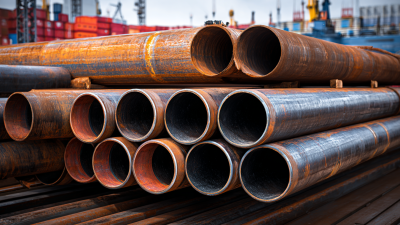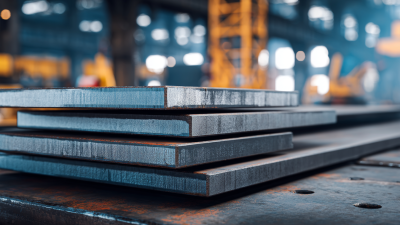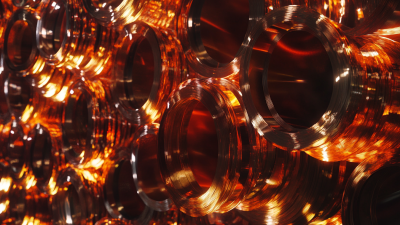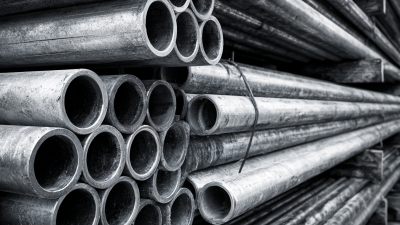The incredible versatility of Stainless Steel Coil in modern manufacturing cannot be overstated, as it serves a multitude of applications across various industries. According to a recent report by the Global Stainless Steel Development Association, the demand for stainless steel in manufacturing is projected to reach approximately 40 million metric tons by 2025, driven by its unique properties such as corrosion resistance, durability, and aesthetic appeal.
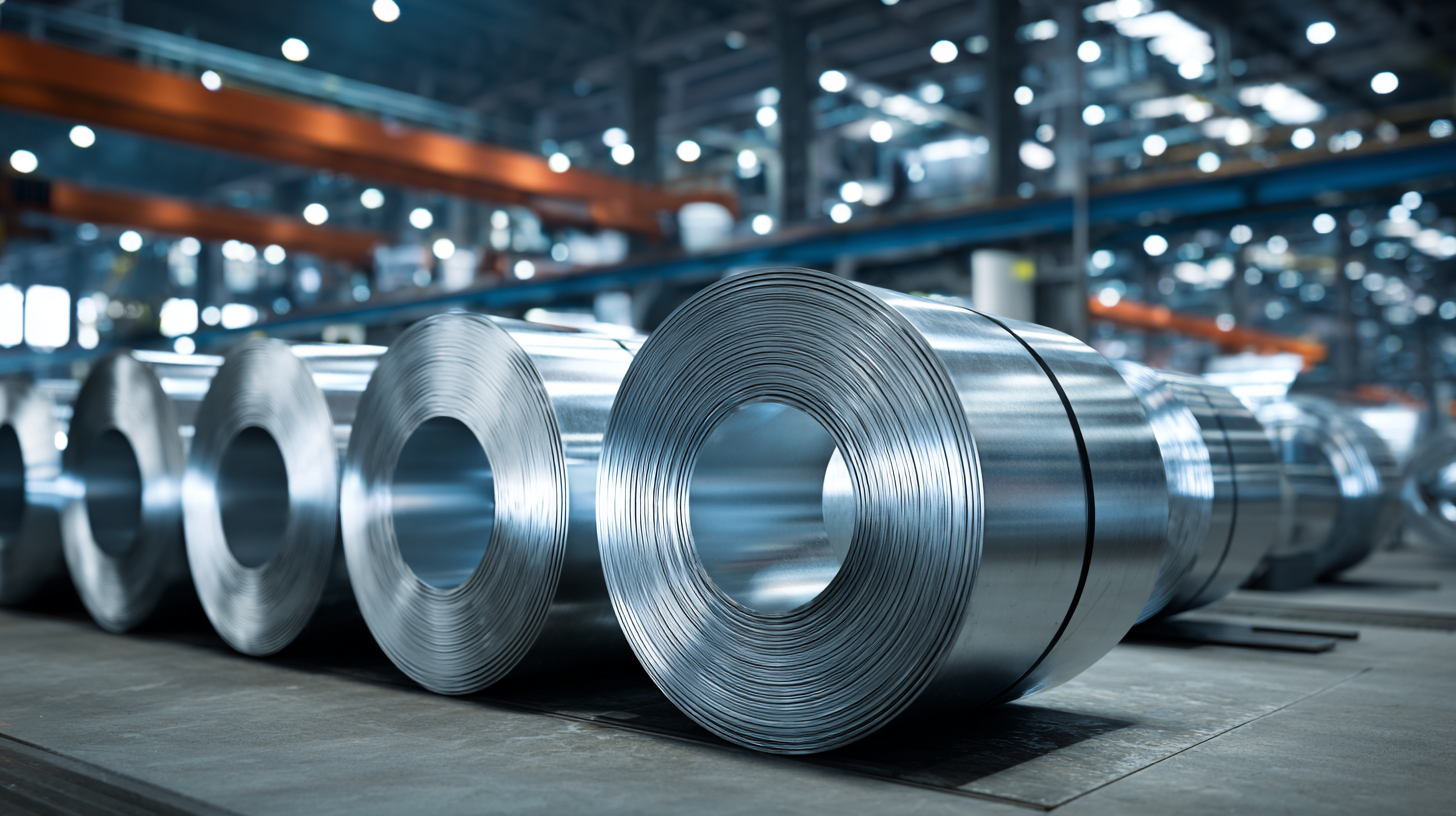
Stainless Steel Coil, in particular, has gained significant traction due to its adaptability and efficiency in production processes, allowing manufacturers to achieve greater precision and cost-effectiveness in their products. With innovations in processing techniques and a wider range of grades available, the role of Stainless Steel Coil is becoming increasingly critical in sectors like automotive, construction, and consumer goods, fundamentally shaping the landscape of modern manufacturing.
The automotive industry is increasingly recognizing the critical role of stainless steel coil in enhancing production efficiency. The global cold rolled coil steel market is projected to grow significantly, rising from $88.35 billion in 2025 to an estimated $134.71 billion by 2032, boasting a CAGR of 6.2%. This growth underscores the rising demand for high-quality materials that can meet the stringent standards of automotive manufacturing.
Similarly, the stainless steel welded pipe market is on a positive trajectory, expected to reach USD 34.0 billion by 2035, with a notable CAGR of 5.0% between 2025 and 2035. These forecasts reveal an ongoing trend where manufacturers are prioritizing stainless steel for its durability, corrosion resistance, and ability to reduce weight without sacrificing strength—key factors in improving vehicle performance and efficiency. The increasing use of stainless steel coil in vehicle production not only streamlines manufacturing processes but also aligns with the industry's push for sustainable and high-performance materials.
In the modern construction industry, stainless steel coil has emerged as a crucial material due to its remarkable properties and versatility. According to a recent report by the International Stainless Steel Forum, the global demand for stainless steel in construction is projected to grow at an annual rate of 4.5%, reaching approximately 10 million metric tonnes by 2025. This surge can largely be attributed to the material's resistance to corrosion and its ability to withstand extreme weather conditions, making it an ideal choice for both structural and aesthetic applications.
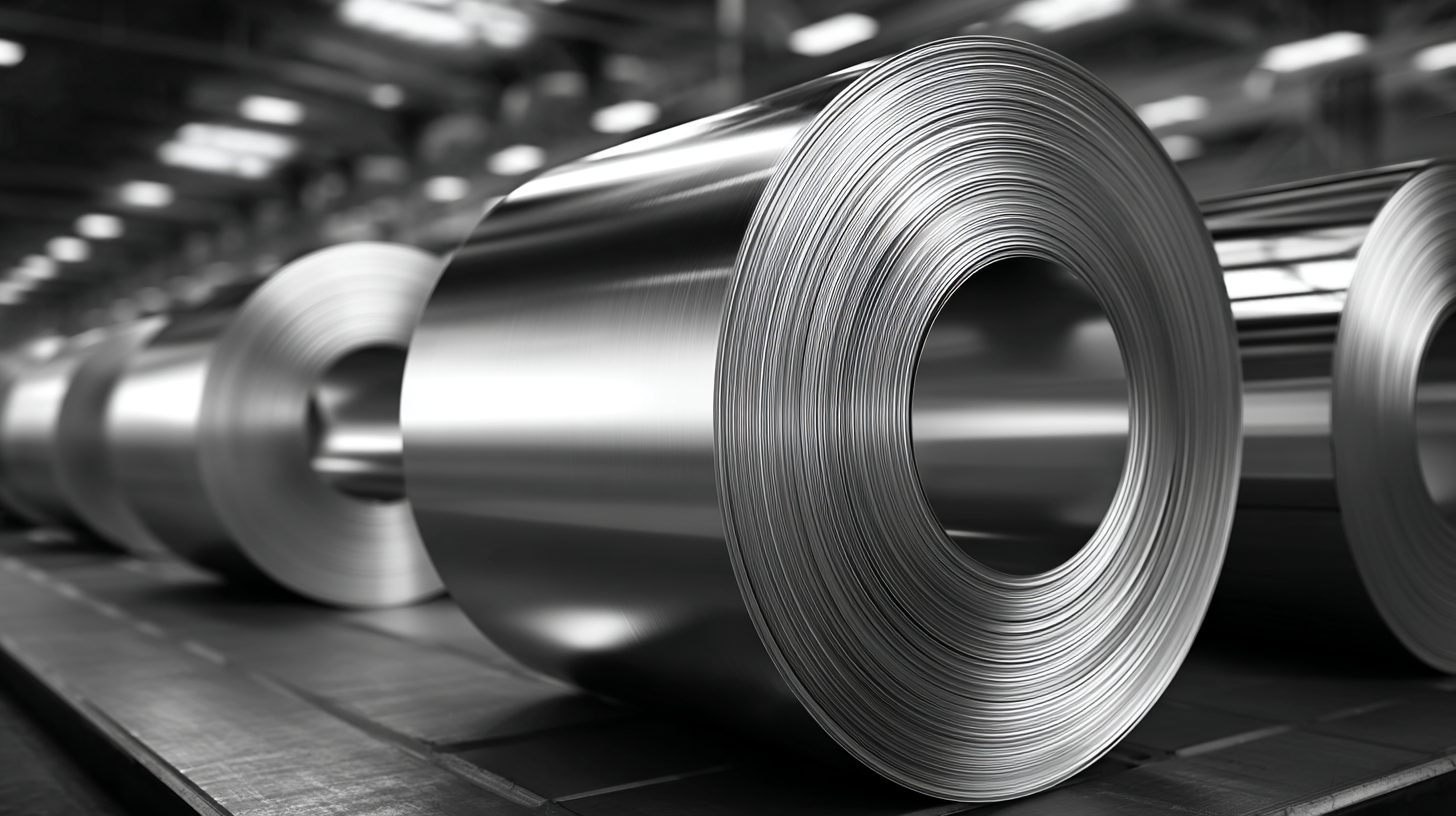
One of the most innovative applications of stainless steel coil in construction is its use in facades and roofing systems. Architects increasingly prefer stainless steel for these elements as it not only provides a sleek and modern appearance but also enhances energy efficiency by reflecting solar heat. Additionally, stainless steel's durability significantly reduces maintenance costs over time. A study by the Construction Industry Research and Information Association highlights that buildings utilizing stainless steel can have a lifespan increase of 15-20% compared to those made with traditional materials. As the construction sector continues to seek sustainable and long-lasting solutions, the role of stainless steel coil is set to expand further, contributing to more resilient infrastructure worldwide.
Stainless steel coil has emerged as a crucial material in modern manufacturing, particularly in industries where hygiene and safety are paramount.
In the food sector, the use of stainless steel coil enhances food safety standards significantly. Its non-porous surface minimizes the risks of bacterial contamination, making it an ideal choice for food processing equipment and surfaces. This is particularly important in environments where cleanliness is critical, such as in commercial kitchens and food packaging facilities.
Furthermore, stainless steel coil is highly resistant to corrosion and degradation, maintaining its integrity over time even in the presence of harsh cleaning chemicals. This durability ensures that food products remain uncontaminated, thereby protecting public health. By adopting stainless steel coil in manufacturing processes, companies not only comply with stringent health regulations but also enhance their overall operational efficiency. Ultimately, the versatility of stainless steel coil positions it as an essential asset in modern food safety practices, contributing to a safer and more reliable food supply chain.
Stainless steel coil has emerged as a key material in the advancing landscape of renewable energy technologies. Its unique characteristics, such as corrosion resistance, strength, and durability, make it an ideal choice for various applications within the energy sector. For instance, in solar panel manufacturing, stainless steel coils serve as structural components that not only provide support but also contribute to the overall efficiency of solar energy systems. The coil’s ability to withstand harsh environmental conditions ensures a long lifespan for solar installations, reducing maintenance costs and enhancing energy production reliability.
Moreover, in the realm of wind energy, stainless steel coils are crucial in the construction of wind turbine components. The high tensile strength of stainless steel provides the necessary support for turbine blades and towers, optimizing their performance against environmental stressors like strong winds and varying temperatures. Additionally, the recyclability of stainless steel aligns perfectly with the sustainability goals of the renewable energy sector, making it a smart choice for eco-friendly manufacturing practices. As the demand for clean energy continues to rise, the versatility of stainless steel coils will undoubtedly play a vital role in shaping the future of these technologies.
 The cost-effectiveness of stainless steel coil in mass manufacturing processes is a significant factor driving its widespread adoption across various industries. Stainless steel coil offers a remarkable balance between quality and expense, making it an ideal choice for manufacturers looking to optimize production without compromising on durability. Its resistance to corrosion and high temperatures reduces the necessity for frequent replacements, thus minimizing long-term operational costs.
The cost-effectiveness of stainless steel coil in mass manufacturing processes is a significant factor driving its widespread adoption across various industries. Stainless steel coil offers a remarkable balance between quality and expense, making it an ideal choice for manufacturers looking to optimize production without compromising on durability. Its resistance to corrosion and high temperatures reduces the necessity for frequent replacements, thus minimizing long-term operational costs.
Additionally, the uniformity and scalability of stainless steel coil contribute to its economic advantages. Manufacturers can easily produce large quantities of components with consistent quality, which streamlines production lines and reduces lead times. Furthermore, the versatility of stainless steel allows for innovative design applications, leading to improved functionality and efficiency in products. As a result, companies investing in stainless steel coil not only benefit from immediate cost savings but also position themselves for sustainable growth in a competitive market.


